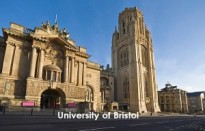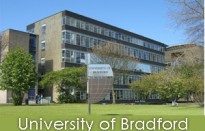Foreign grad students can work in Canada
Foreign PhD student Hamid Omran, left, was able to work with Gerd Birkle and Stantec Consulting while at school thanks to new visa rules.
Photograph by: Leah Hennel, Calgary Herald, For The Calgary Herald
Recent changes to limited student visas for foreign masters and PhD students now allow them to find work in their respective fields while completing their postgraduate degrees – a change that some companies are using as a recruitment tool – eliminating restrictions on working off campus in their chosen professions.
Foreign post-grad students such as PhDs typically receive about three or four years of funding, although it can take longer before they defend their thesis and complete their degrees. Many return home to find work while writing their theses before coming back to Canada to defend them and complete their education.
Over the past two years, those restrictions have been quietly lifted, so they can now work up to 20 hours in a job related to their education while in Canada. After they complete it, the Canadian government grants them a threeyear work visa – which helps retain Canadian-educated foreign workers – and allows them to transition into a full-time job in their fields.
Until recently, the problem has been that the foreign, but Canadian-educated, students lacked any Canadian or industry experience because of the limitations placed on their visas.
Hamid Omran is taking full advantage of this opportunity. He was recently hired by the Calgary office of Edmonton-based engineering firm Stantec Consulting Ltd., while completing his PhD in structural engineering at the University of Calgary.
“I realized that I would have to start to work,” says Omran, who came to Canada from Iran in 2008 for his studies. His funding ran out after about two-and-a-half years, so he asked around about job openings in his field last year.
At the same time, Gerd Birkle was looking to tap into this pool of highly skilled talent. He is Stantec’s practice leader in structural engineering in Calgary and is starting to use the new, relaxed rules to recruit international engineering students.
“I saw the opportunity, went to my regional leader and told him this is what I want to do and he said yes – go ahead,” Birkle says. It turns out Birkle had some of the same connections as Omran at the university, so they made a connection and Birkle hired Omran in November.
“We connected on that level to ask what kind of a person he is – would he fit? – and we found out quickly that he did,” Birkle says. “The ultimate goal when he’s done (his PhD) is to grab onto him.”
It’s an option that many students and employers still don’t know is available to them, he adds.
“When I’m done with school, I (will) have enough experience to work,” Omran says.
There is also the more immediate, practical and financial aspect to it. “The money provided by work is a major help,” says Omran, who will continue to work part-time in his engineering job at Stantec before he finishes his degree at the U of C.
Birkle can relate to the uphill battle Omran would have faced without the ability to work as an engineer while studying. He came to Canada in 1995 for his PhD on a student visa long before the new rules came into effect.
He ended up going back to Germany to finish work on his degree and thesis before coming back to Canada in 1999. He was then granted a two-year unlimited work permit – the new rules now allow for three years – and applied for permanent residency.
“There was no opportunity for me to work off campus,” recalls Birkle, who says the need for highly skilled technical engineers is growing fast.
Depending on the fluctuations in the price of oil and gas, the Petroleum Human Resources Council of Canada projects the industry will need somewhere between 3,500 and 9,500 additional engineers and geosciences professionals this decade. Thousands of current engineers in Alberta are reaching retirement age and industry organizations are increasing efforts to expand the talent pool.
Most in demand are petroleum, civil, electrical and mechanical engineers, although the need is being felt across disciplines.
Birkle says while many young engineering grads target jobs in management and business development, what’s really needed is more technical engineers going forward.
“We have a big need for technical engineers . . . that do engineering for engineering’s sake,” Birkle says. “They are harder to find.”
Read more: http://www.calgaryherald.com/Canadian+student+visa+rules+relaxed/6031351/story.html#ixzz1kpYQIk7j



































